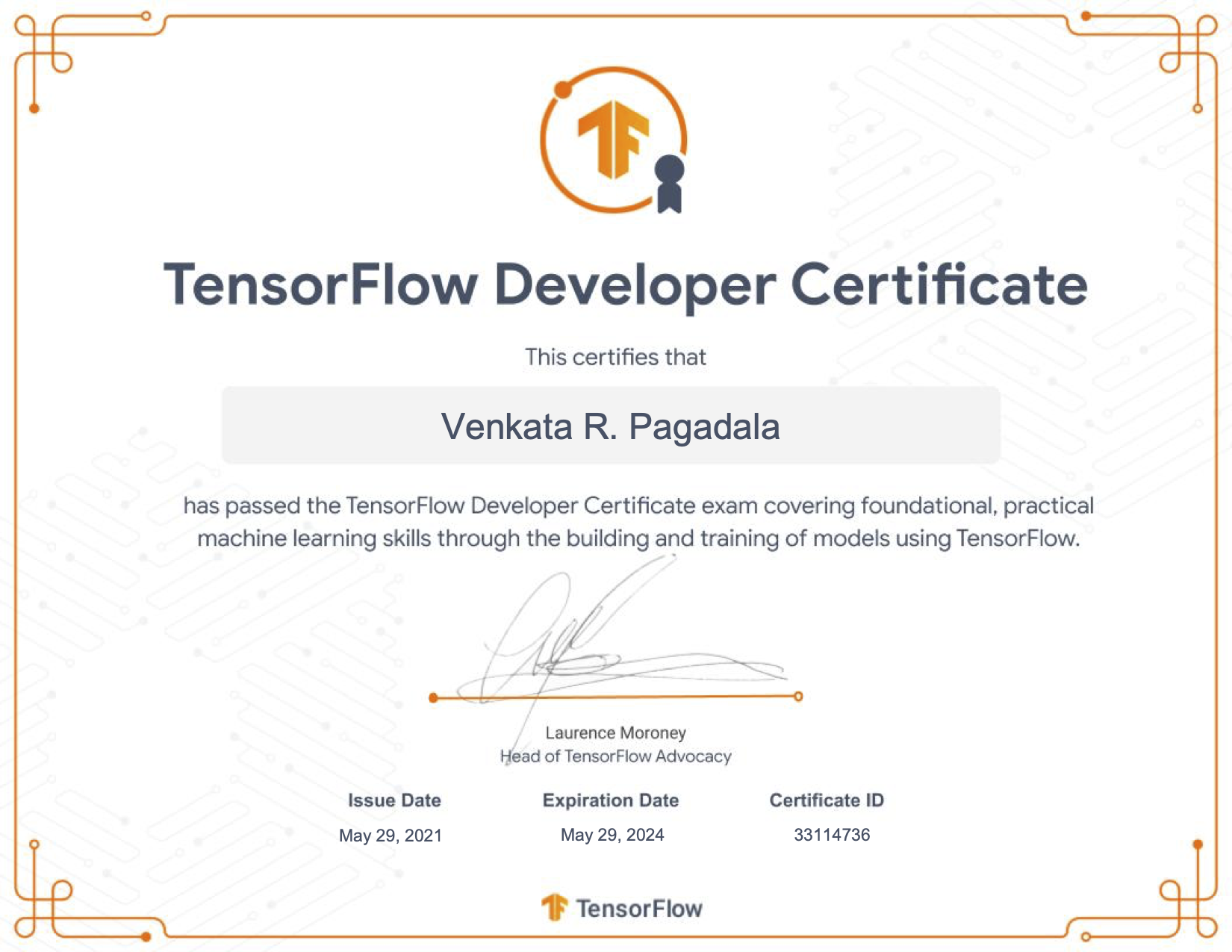Tensorflow Exam Notes
I took this exam recently (my credential). Thought of adding a few notes here, because it appeared to me as a bit unconventional exam.
Interesting bits
- Long duration of exam: 5 hours, but that's barely enough.
- No multiple-choice type questions (coding only)
- Grading is based on the model accuracy against test data
- Requires you to use a specific IDE and a special exam plugin
Exam info
The exam handbook is here and exam web page here. It appears that there are less than 2400 people who got certified since the launch of the exam in early 2020.
The exam is very insistent on using latest versions of tensorflow, python and pycharm. I have used VS Code anyway for codng and then submitted using pycharm.
Questions
There are five categories, with one model to develop in each category. My models have scored 5/5 in all categories. The areas covered are Computer vision, NLP and Time-series forecasting. Some questions require tweaking of the code for hours to get that required accuracy on test data. So time-management is critical. A good strategy is to submit basic models for all questions as soon as possible and then start improving them as the time allows.
GPU
I haven't upgraded my mac to M1 yet. So, instead of using Colab or Kaggle, I have used an azure cloud VM with K80 for the exam and for practice as well (it's only about $0.5/hour). The reason for using a cloud GPU was, I wanted to use VS Code on SSH, without being limited to Jupyter notebooks in the web browser. I like VSCode's inline code cells which do not clutter code with outputs.
Also, I thought K80 is an ancient GPU, but surprisingly, I found it giving better perfornace than the modern T4 which powers Google Colab. This is probably because the Colab GPUs have higher user load.
Prep
It took about 5-6 weeks of practicing for me, mostly on weekends. Most of my practice was by coding dozens of models and quick testing them on GPU. There are multiple books and web resources I have skimmed through. All the usual ones. In particular, the Tensorflow and Keras API references and guides were most useful.
Why did I take this exam?
Coding challenges are always fun. I found the exam style and the outcome very satisfying!
